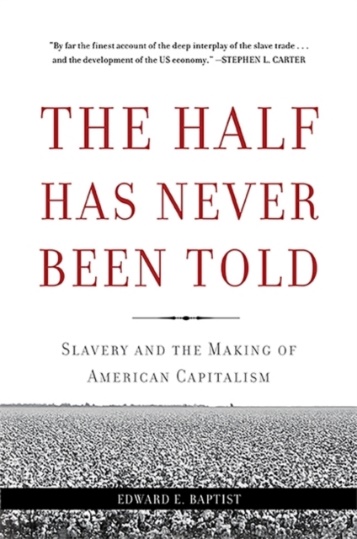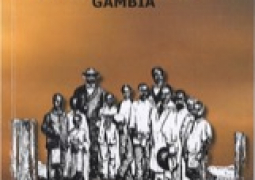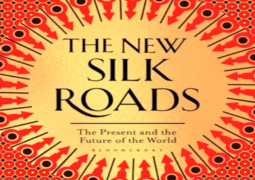
Reviewed by Scott Curtis
Historian Edward E. Baptist presents a readable and engaging account of slavery in the United States from approximately the American Revolution through the Civil War. Unlike many narratives, this history focuses on how the incredible expansion in wealth and prosperity in the young nation rested upon the unpaid and dehumanizing toil of enslaved African Americans in the emerging cotton industry of the Deep South and Southwest. Cotton, a booming staple, represented the “second story” of slavery in the New World, the first being that of the luxury goods, sugar and rum.
Cotton farming required land and labor. The successful slave revolt in Saint-Domingue (modern Haiti) and Napoleon’s subsequent failures to subdue the former slave rebels precipitated the Louisiana Purchase from France to the United States. New Orleans immediately became a vital shipping and trading port for the South. The banning of the Transatlantic slave trade in 1809 did not prevent the sale and transportation of slaves from the Southeast to enslavers in the Southwest as demand grew for labor “hands” to cultivate and pick cotton.
The second story of slavery is the story of the brutality and torture of the cotton camps. Enslavers’ techniques for organizing and extracting ever-increasing amounts of work from the enslaved rested on the regular practice of bodily violence. The author presents the instruments and methods of this violence in graphic detail. Cotton labor camp productivity rose 400% from 1790-1860, a rate of increase that, in the absence of automation, has no historical precedent. Conventional accounts of the cotton boom focus on the importance of the cotton gin for separating cotton fibers from cotton seeds. This technological thread is only part of the story, as the bottleneck to cotton shipments became the manual labor-intensive process of cotton picking. The revolution in cotton productivity relied upon enslaved men, women, and children, picking furiously under threat of a whipping.
Baptist’s book makes clear that the economic benefit derived from the enslavement of African Americans knew no border in the United States. While slavery itself extended to the Southwest, the development of improved credit and finance instruments created leverage that enabled not only slavery’s expansion, but also enriched Northern interests.
This important re-framing of slavery’s historical narrative covers many other aspects of the second slavery in great detail, such as methods of forcibly separating enslaved individuals from their families and transporting them south, slave revolts and their violent suppression, and the pervasive trafficking of mulatto girls and women for sex, to name a few.
Baptist provides extensive endnotes with references to enslavers’ journals, records of sales of men, women, and children in New Orleans, published slave narratives, WPA interviews with former slaves and their descendants, newspaper accounts, and many other first-hand or scholarly sources. Readers of The Half Has Never Been Told will gain a fuller understanding of the impact of slavery upon the United States prior to the Civil War, and its echoes in our current day.





